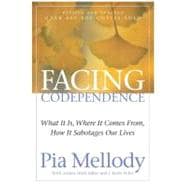A brilliant new guide to understanding the origins of codependence and the path to recovery by a nationally recognized authority on dependency and addiction. Pia Mellody creates a framework for identifying codependent thinking, emotions and behavior and provides an effective approach to recovery. Mellody sets forth five primary adult symptoms of this crippling condition, and then traces their origin to emotional, spiritual, intellectual, physical and sexual abuses that occur in childhood.
This textbook stands out among the current glut of material on codependence because it claims the realm of parenting for its vantage point. Central to Mellody's approach is the concept that the codependent adult's injured inner child needs healing. Recovery from codependence, therefore, involves clearing up the toxic emotions left over from these painful childhood experiences.
Author Biography
Pia Mellody, a nationally recognized authority on codependence, is a consultant at The Meadows, a treatment center for addictions in Wickenburg, Arizona.
Andrea Wells Miller is president of A. W. Miller and Associates, a communications company.
J. Keith Miller is a noted speaker and bestselling author. Among his best-selling books are "The Taste of New Wine" and "Hope in the Fast Lane." He is also the coauthor of "Facing Codependence.''








